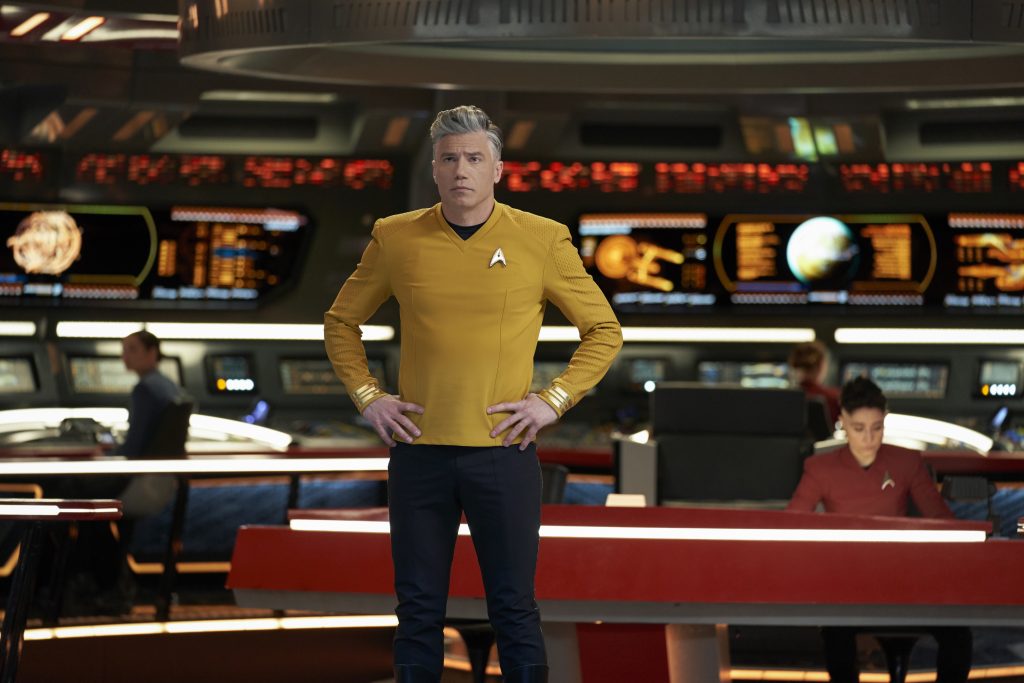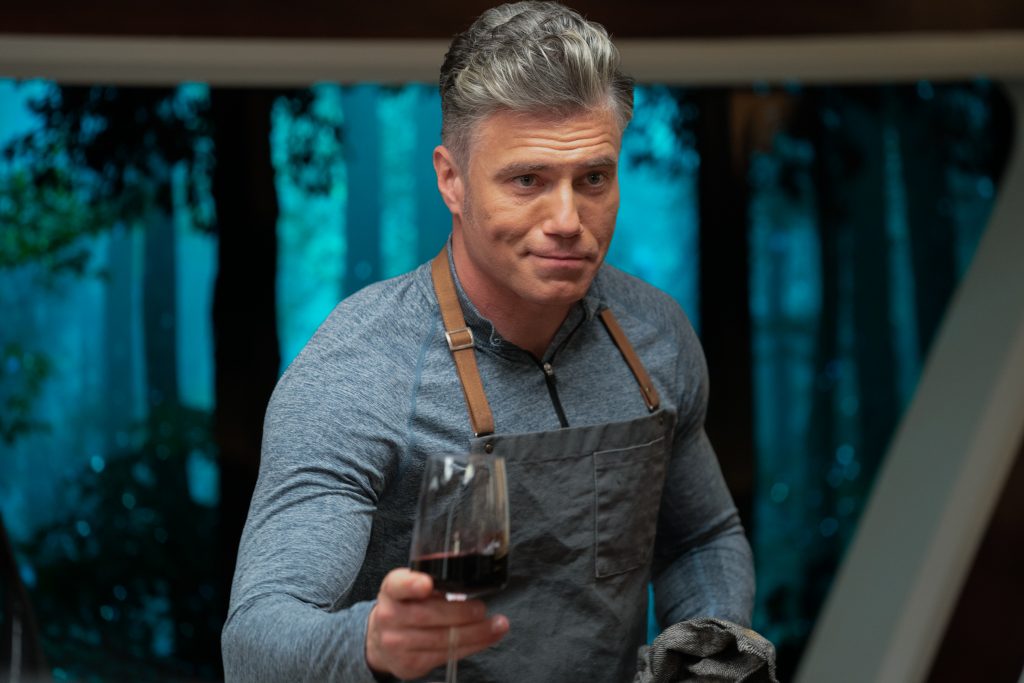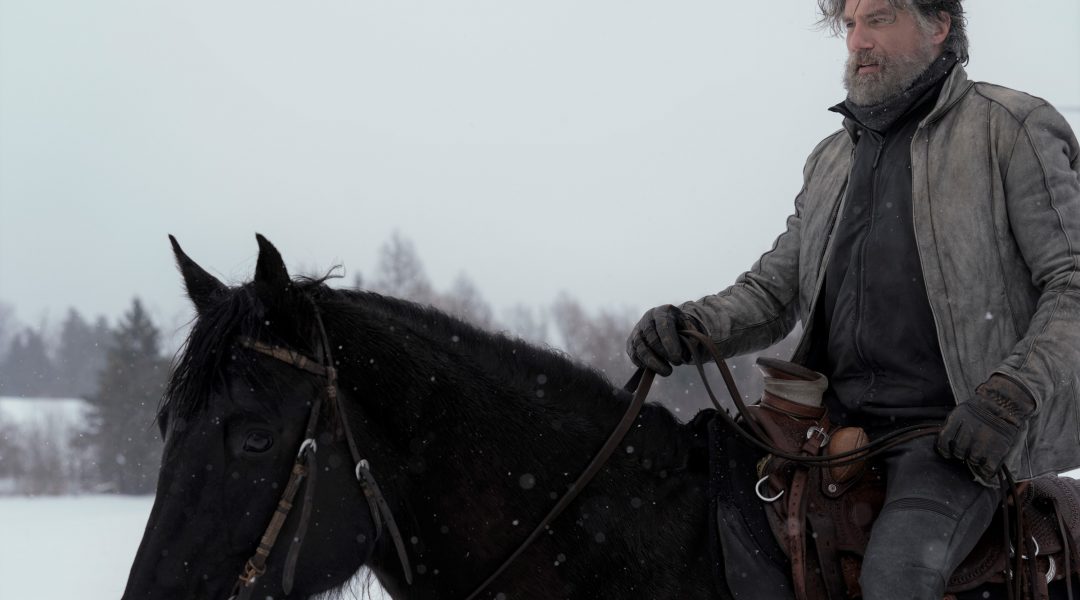Two episodes of the popular Paramount+ Star Trek spinoff will air on Star Trek Day.
Boldly going where Paramount+ has gone before, CBS will be celebrating Star Trek Day with a little help from C&I reader favorite Anson Mount, who has transitioned from the Wild West of Hell on Wheels to the outer space of Star Trek: Strange New Worlds.
The first two episodes of the Paramount+ original series starring Mount as Capt. Christopher Pike, the pre-Kirk commander of the U.S.S. Enterprise, will air back-to-back on the broadcast network starting at 8 pm ET Sept. 8.

Here are plot synopses for the Star Trek: Strange New Worlds airing on CBS:
Episode 101, Series Premiere: “Strange New Worlds” – When one of Pike’s officers goes missing while on a secret mission for Starfleet, Pike (Anson Mount) has to come out of self-imposed exile. He must navigate how to rescue his officer, while struggling with what to do with the vision of the future he’s been given.
Episode 102: “Children of the Comet” – While on a survey mission, the U.S.S. Enterprise discovers a comet is going to strike an inhabited planet. The crew tries to re-route the comet, only to find that an ancient alien relic buried on the comet’s icy surface is somehow stopping them. As the away team tries to unlock the relic’s secrets, Pike (Anson Mount) and Number One (Rebecca Romijn) deal with a group of zealots who want to prevent the U.S.S. Enterprise from interfering.

When we interviewed Mount for our October 2021 cover story celebrating the tenth anniversary of Hell on Wheels, he noted that series and Star Trek: Strange New Worlds have key elements in common.
“It’s the reason the first four words of every episode in the original Star Trek show are, ‘Space, the final frontier,’” Mount said. “Gene Roddenberry saw Star Trek as the natural extension of the wagon trains going west. And yeah, to him it was a Space Western. Now it turns out he may very well have been wrong, that space may not be the final frontier. After the original series ended, we’ve gained deeper understanding of multidimensionality and the multi-verse theory. But when I think about that, those ideas, I’m not disappointed, dejected, or feel put upon by the idea that there’s even more to be discovered. I am naturally excited, and I think most other people are naturally excited, by that.
“And I think that there’s something deeply human about that feeling, about that emotion, which is at the heart of not only what Roddenberry was trying to capture about our exploratory nature, but also is what drove the wagon trains west. My favorite Gene Roddenberry quote is, ‘Star Trek speaks to some basic human needs — that there is a tomorrow.’ I think that there’s something deeply human in our need to gather around the campfire and hear a story told together — which is why I think movie theaters will never go out of fashion. And it’s equally human about those of us who need to turn around and walk out of the firelight to see what’s out there in the darkness.”
Of course, it’s always good to remember how producer Gene Roddenberry originally pitched Star Trek to NBC back in the 1960s: Wagon Train to the stars.

Photos: Marni Grossman/Paramount+













